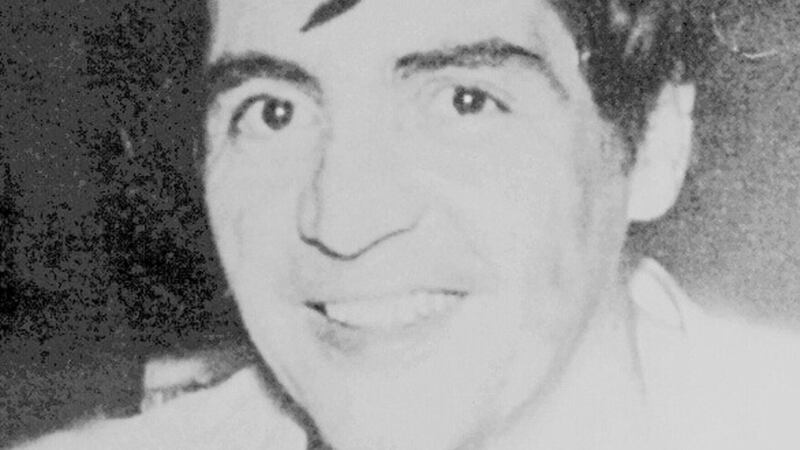A delayed claim for damages over the fatal shooting of an IRA man by British soldiers more than 50 years ago is time-barred from continuing, a High Court judge has ruled.
With some of the ex-troops now either dead or untraceable, Mr Justice McAlinden dismissed the action brought on behalf of Stan Carberry’s family due to the risk of unfairness.
Mr Carberry, a father of six, was shot dead in disputed circumstances on Falls Road, west Belfast in November 1972.
The 34-year-old heating engineer had been in a hijacked car when members of a Royal Green Jackets patrol opened fire.
Soldiers later told an inquest they were shot at from the passenger side of the Vauxhall Viva.
According to others, however, Mr Carberry was in the driver's seat and killed as he tried to surrender.
His son, Stan Carberry Jr, sued the Ministry of Defence (MoD) for the alleged unjustified use of lethal force.
But with a writ not issued until 2014, Mr Justice McAlinden held that limitation periods which expired back in 1991 cannot be extended.
“The court, in a misguided effort to provide Mr Carberry Jr and the other members of the Carberry family with the truth, cannot embark on a flawed and unfair process which risks delivering historical untruths, constructed from incomplete evidence which patently lacks cogency,” he said.
“This claim is statute barred and the defendant shall have judgment accordingly.”
In evidence, Mr Carberry Jr told of being robbed of his childhood and how he decided to take legal action to establish the truth about the killing of a parent described as his best friend.
His mother knew nothing about her husband's IRA involvement until after his death, the court heard.
With the inquest in 1974 returning an open verdict, the family were also unimpressed by an Historical Enquiries Team (HET) police investigation in 2009.
Mr Carberry recalled reacting angrily when an HET detective allegedly told him his father had been "hanging out the car shooting at soldiers" while driving on the Falls Road.
The family contended that the Army’s version of events was disproved by an eye-witness who said she saw the deceased emerge from the driver’s side of the hijacked vehicle before collapsing on the road.
With the MoD seeking to have the action time-barred, counsel for the defendant also argued the claim was without merit as the shooting of Mr Carberry was clearly and demonstrably justified in law.
Based on his military-style funeral, death notices placed at the time, and the retaliatory murder of a British soldier in Belfast, the judge was satisfied about Mr Carberry’s republican affiliations.
“It is safe to conclude that the deceased was a member of the IRA who was ‘killed in action’ and whose death provoked a swift and deadly response from the organisation of which he was a member,” he said.
But despite understanding why the family may have been reluctant to take legal action at the time due to his links with the organisation, Mr Justice McAlinden held that the delay jeopardised the prospects of a fair trial.
“There is something innately unfair about the plaintiff and the other dependants waiting with no good reason for such an inordinately long period of time… and then requiring the defendant to identify, garner and call evidence justifying the split-second decisions of soldiers who were presented with the presence of a hijacked car on the Falls Road on 13 November 1972,” he said.
“The historical context of that time cannot be ignored and that involves an acknowledgement of the uses to which hijacked vehicles were being put in those, the darkest days of the Troubles.”
Speaking outside court, Mr Carberry’s solicitor, Gary Duffy of KRW Law, described the ruling as disappointing for a family who had “fought valiantly for justice”.
Mr Duffy added: “Significantly, it will also help prevent the State from trying to strike out other Troubles-related cases before they reach trial.”


